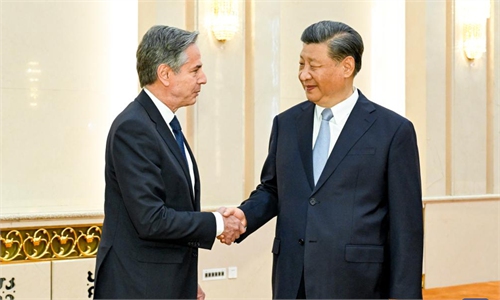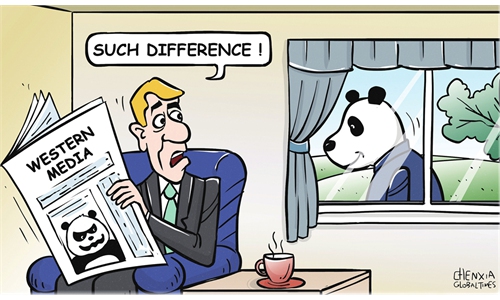As US seeks talks with China, decision on bilateral science deal poses test for Washington's sincerity

China-US Graphic: GT
Even as American officials, including US Secretary of State Antony Blinken, are pursuing talks with their Chinese counterparts aimed at stabilizing a bilateral relationship that is at its nadir, there is growing talk in Washington of letting a landmark bilateral science and technology deal expire later this year.
Washington, under its containment strategy against China, has seriously undercut the China-US Science and Technology Agreement (STA), which was signed in 1979 and has underpinned bilateral cooperation in science, technology and other areas for decades. Refusing to renew the deal this year would send a symbolic signal of the US' lack of sincerity in pursuing win-win cooperation, Chinese experts noted.
There is a debate within the US government about whether to let the STA expire, Reuters reported on Sunday. "While the dominant US view appears to be in favor of renewal, a growing contingent of officials and lawmakers believe cooperating on science and technology makes less sense given competition between the countries," Reuters cited unidentified US officials as saying.
The deal has been renewed every five years or so and is set to expire on August 27, according to Reuters. Among the most vocal critics of the deal is anti-China US lawmaker Mike Gallagher, who chairs a hostile US congressional select committee on China. Gallagher has demanded that President Joe Biden's administration "must let this outdated agreement expire."
"Whether or not the US will renew the agreement carries more symbolism than substance," Tian Yun, a Beijing-based veteran economist, told the Global Times on Monday, "US practices have already hollowed out most of the substantive content in the agreement."
While the STA has historically played a crucial role in promoting China-US cooperation in scientific and technological fields and stabilizing bilateral ties, Washington has been relentlessly trying to contain China's technological rise by cracking down on Chinese firms and imposing restrictions on scientific and technological exchanges.
However, if Washington renews the agreement, it would send a positive signal that China and the US are still trying to carry out cooperation, following the latest talks in Beijing, Tian noted.
On Sunday, Blinken became the highest-level US official to visit China since 2018. In Beijing, Chinese officials held multiple rounds of talks with the US secretary of state. The two sides reached consensuses on several issues, including effectively managing differences, advancing dialogue, exchanges and cooperation, as well as encouraging more people-to-people and educational exchanges, according to the Chinese Foreign Ministry.
Gao Lingyun, an expert at the Chinese Academy of Social Sciences in Beijing, said that agreeing to continue advancing consultations through the joint working group to address specific issues in the relationship means that more talks will be held, which is a positive signal. Another positive signal is the consensus on encouraging more people-to-people and educational exchanges, which could result in increased cultural exchanges and flights, he said.
However, as the talks in Beijing were mostly focused on the overall bilateral relationship, it remains to be seen how they will affect bilateral economic and trade cooperation going forward, Gao told the Global Times on Monday.
As for the STA, there is no reason for the US to refuse to renew the deal, which was renewed in 2018, when bilateral ties also faced great tension, Gao said.
"Science is about transnational cooperation, and it is of great importance to mankind and a global issue. The US should go higher than [petty politics and its self-interest]," he said.
Meanwhile, after its relentless crackdowns and restrictions on cooperation failed to contain China and instead inflicted pain on many US businesses, Washington is reconsidering its radical decoupling push.
While it will not relax its containment strategy, the US will also make adjustments in certain areas, Tian said, adding that restrictions could be relaxed in certain economic and trade areas where both sides can achieve win-win results.




